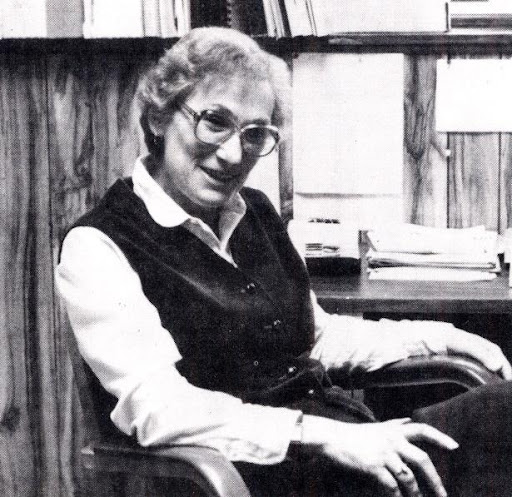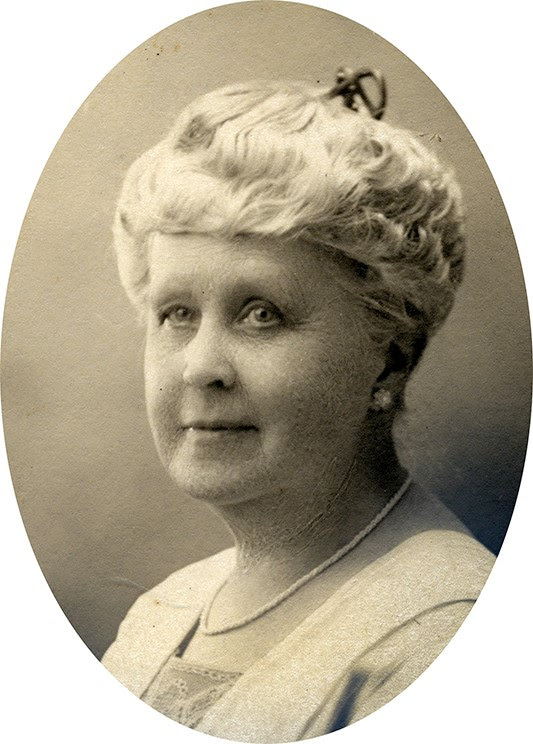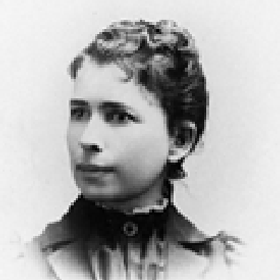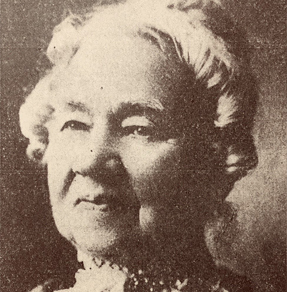Born in New Bedford to parents who had been enslaved, educator Elizabeth Piper Ensley (1847-1919) was an active leader in African American women’s clubs and the women’s suffrage movement in Colorado. She played a major role in gaining that state the right to vote years before the passage of the federal amendment.
Educator Elizabeth Piper Ensley (1847-1919), born in New Bedford, was an active leader in African American women’s clubs and the women’s suffrage movement in Colorado. Throughout her life, Elizabeth worked to improve the rights of women and African Americans. Born in 1847 to parents who had been enslaved, she understood the threats that African Americans were under in the pre-Civil War era. Many of Elizabeth’s family members came to New Bedford on the Underground Railroad in 1828 and were active in the Massachusetts and national anti-slavery efforts of the time. Elizabeth grew up in a supportive environment where family and community members were active in the abolitionist movement, practiced social justice, and worked to end enslavement. As part of her education, Elizabeth attended the Allen’s West Newton English and Classical School, usually called the Allen School. The Allen School was a model for the establishment of normal teaching schools. Nathaniel Allen, founder and principal of the school, was known as active and vigorous in the anti-slavery cause and in providing for the education of the colored race. Elizabeth attended the Allen School from 1865 until 1869 and would have met the bevy of abolitionists who were activists at the time.
Elizabeth toured Europe from 1869-1871 returning to the U.S. to teach in New Jersey and in Boston, where she established a circulating library from 1875-1878. It was during this period she taught and took classes at the Boston Art School when she met Newell Ensley, whom she would marry in 1882. Newell, born in Nashville, Tennessee on August 23, 1852, was the son of Clara and George Ensley. Born into slavery, he was owned by his maternal grandfather who hired a teacher to instruct him to read and write. After the Civil War, Newell worked to become a Sunday school teacher with the hope of becoming a preacher. He graduated third in his class from Roger Williams University in Nashville in June 1878, and then attended Newton Theological Seminary in Massachusetts, where he was the only Black man in his graduating class (ca. 1881). Elizabeth and Newell moved to Washington, D.C. where they both were on the teaching faculty of Howard University’s Normal School, one of the most important academic institutions for African Americans in the country. While teaching and raising their family, Elizabeth also became involved in the suffrage movement and was politically active in organizing on behalf of civil rights. It should be noted that Newell wrote on the issues of the rights of women and the rights of the Negro.
In 1892, Ensley and her husband moved to Denver, Colorado which had the largest African American population in the state. Here she continued to work as a suffragist, educator, and journalist. She became a reporter for the “Women’s Era,” a newsletter affiliated with the National Association of Colored Women (NACW). Although the 19th Amendment granting federal suffrage was not ratified until 1920, women in Colorado won the right to vote in 1894, the second state to grant suffrage to women. Even though women in Colorado already had the right to vote, Ensley founded the Colored Women’s Republic Club with the intent to educate women of color on how to vote and why they should vote. Impressively, this group also helped to get the first Black legislator from Colorado elected.
She founded the Colorado Association of Colored Women’s Clubs (CACW) in 1904, which created a stronger alliance by joining eight organizations throughout Colorado. The CACW led community and educational programs, including the George Washington Carver Day Nursery. Ensley served as the second vice president of the Colorado State Federation of Colored Women’s Clubs. She delivered an address to the Federation in 1906 titled “Women and the Ballot.” Ensley was the only African American member of the predominantly White board of the Colorado Federation of Women’s Clubs.
In the summer of 1906, Ensley served as the second vice president of the Colorado State Federation of Colored Women’s Clubs. This group worked to organize and mobilize suffrage, while also helping to work towards the state’s goals of farm labor reforms and civil rights. Ensley died in 1919, just before the ratification of the 19th Amendment, however her organizing work in Colorado played a major role in gaining that state the right to vote before the passage of the federal amendment and left an extraordinary legacy that inspired thousands of citizens to understand the importance of their vote and their responsibility to take action in a democratic society.
In 2020, Ensley was posthumously named an honoree of the National Women’s History Alliance as a Women’s Vote Leader for 2020 for her role as an African American Suffragist.
Ensley will also be inducted into the Colorado Women’s Hall of Fame in 2020.
Lee Blake, New Bedford Historical Society
Information from
-
“Elizabeth Piper Ensley.” The Crisis, vol. 20, no. 1, May 1920, p. 38.
-
Emory Women Writers Resource Project. The Women’s Era, Volume 1. Club notes. http://womenwriters.digitalscholarship.emory.edu/toc.php?id=era1.
-
Lerner, Gerda. Black Women in White America: A Documentary History. Vintage Books, 1992.
-
Piper Family Papers, Iris Hawkins and Lee Blake.
-
Terborg-Penn, Rosalyn. African American Women in the Struggle for the Vote, 1850-1920. Indiana University Press, 1998.
![[Elizabeth Piper Ensley], c. 1900, Photograph, Courtesy of Denver Public Library Photograph of Elizabeth Piper Ensley - profile of woman. She has light color hair in an up-do and she's wearing a black choker necklace and some kind of see-through white wrap around her shoulders.](https://historicwomensouthcoast.org/wp-content/uploads/2020/05/Elizabeth-Piper-Ensley-280x280-1.jpg)




